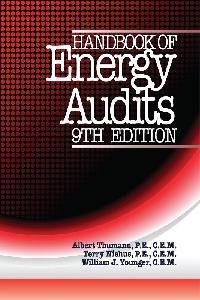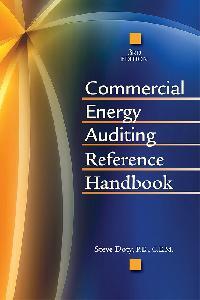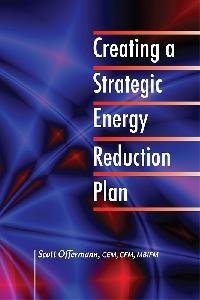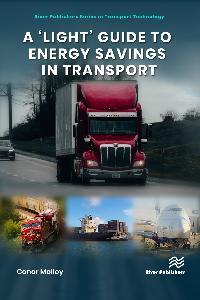
Certified Industrial Energy Professional (CIEP) Training Program | June 2025
- Registration Closed
Course Information
| June 2-6, 2025 |
| 3.3 CEU | 33 PDH | 6.6 AEE Credits |
Pricing
Ends at 11:59 PM EST 8 business days prior to training start.
Non-Member | $2,345
AEE Member | $2,100
Registration closes 1 day prior to training start or if course reaches capacity.
Course Description
AEE’s CIEP training program, recently updated in 2023, is recognized across the industry for providing energy or utility operations professionals – who are in industrial settings, with the knowledge and tools they need to manage these systems more effectively. Over four days, attendees learn everything they need to know about industrial energy strategies for reducing costs and optimizing systems performance.
Who Should Attend
The ideal candidate for the Certified Industrial Energy Professional (CIEP) Training Program is an Industrial Energy Professional who engages in or manages components of utility operations.
Schedule
Daily Breaks Days 1 - 4 : AM Break (15 min) | Lunch Break (1 hr) | PM Break (15 min)
Please see the "My Learning Schedule" tab for schedule information.
*Remote exams are scheduled on an individual basis. See Certification Program tab for additional instructions.
Workbook
Please verify accuracy of your shipping address during registration. Workbooks cannot be delivered to PO Boxes, and any changes to your address after your workbook has been shipped will have an associated fee attached. Shipping is only available within the 48 contiguous states (plus Washington DC), workbooks are expected to arrive at the address provided during registration within 14 days of the course start date.
If you have already registered for this training and need to update your address, send an email to training@aeecenter.org with your revised address details.
Basic Industrial Energy Concepts
Introduction to Industrial Energy Management
- Objectives of energy management
- Climate change & clean energy
- The need for industrial energy management
- Energy basics
- Energy systems efficiency
- Energy balance
- Sensible and latent heat transfer
- Energy audit types and ISO50002
- ISO50001 energy management systems standard
- Relevant driving variable(s) identification
- Baseline and energy performance indicators development
Control Systems
- Basic process and concepts of control systems
- Types of control systems
- Field input elements (thermocouples, RTD’s, transmitters, transducers)
- Field output elements (control valves, actuators, relays)
- Control algorithms, and control technologies
- Energy Information Systems (EIS)
Audit Tools
- Industrial safety
- Electrical metering equipment and data loggers
- Combustion metering
- Rotor and vibration metering
- Temperature metering
- Compressed air leak detection
- Pressure metering
- Flow metering (velocity, differential pressure, displacement, open flow)
- Solar PV and other commercial building metering
Industrial Water Systems
- Water context and the need for water treatment
- Industrial water uses (Oil & gas, food & beverage, mining, construction, forestry, pulp & paper, desalination)
- Basics and types of water treatment
- Reverse osmosis system basics
- Cooling towers and its associated water loss
- Ion exchange, hardness, and blowdown in steam systems
Thermal Systems
Heat exchange systems
- Heat exchanger basics and design
- Main heat exchangers types used in industry and its applications
- Heat exchange fouling
- Heat exchangers in boiler systems
- Heat exchangers in buildings
- Heat rejection and approach temperatures in cooling towers
Industrial Refrigeration Systems
- Refrigerants and its impact
- Basic refrigeration cycle
- Complex industrial refrigeration systems (single stage, multistage, cascade, liquid overfeed, absorption)
- Types of refrigeration equipment
- System efficiency metrics
Furnaces, Boilers, and Fired Equipment
- Fuel types and heating values
- Furnace types
- Furnace efficiency
- Fired heater construction and components
- Boiler types and operation
- Fuel train, construction, function, and firing rate control
- Burner systems, mix design styles, flames, and combustion
- Flaring
Steam Systems
- Steam properties and use saturated and superheated steam tables
- Boiler efficiency (direct & indirect method)
- Boiler losses (shell, blowdown, stack)
- Common methods to reduce Stack Temperature Rise
- Deaerator tanks
- Distribution system (steam leaks, piping, insulation)
- End use (steam traps, condensate return, flash steam)
Rotating Equipment Systems
Turbine Systems
- Steam turbines and gas turbines
- The Rankine cycle, the Brayton cycle, and the combined-cycle
- Combustion chambers, turbine blades and nozzles, seals and glands
- Turbine design, steam flow, and blade types
- Turbine maintenance and control optimization
- CHP technologies
- Conventional power stations, renewable energy, distributed generation, and smart grids integration
Motor Systems
- Electrical fundamentals (induction, electromagnets, power factor)
- Electric motor basics, types, construction, causes of failure
- Electric motor nameplate data (Frame size, kW, insulation class, SF, Volt, etc.)
- Motor efficiency and efficiency classes
- Losses in motors
- Motor drives and speed control
- Transmission types (gears, belts)
Pump Systems
- Pump components and pump type classifications
- Impellers, seals, bearings, couplings
- Delivered power, total head and efficiency of a pump
- Total head, friction head, static head, velocity head
- Distribution losses
- Pump and system performance curves
- Speed changes
- Pumps in series and in parallel
- Pump cavitation, its causes, and remedies
- Net Positive Suction Head available
- Pump maintenance and reliability aspects
Fan Systems
- Fan system fundamentals and components
- Fan types and their various applications considering impeller efficiency and dust loading
- Fan and system performance curves
- Fan controls methods (dampers, inlet louvre dampers, variable inlet vanes, variable speed)
- Effect of variable flow by using the fan laws or affinity laws
- Fan maintenance practices
Compressed air systems
- Compressed air system fundamentals
- Heat recovery and compressor operating conditions
- Compressor types (reciprocating, rotary vane, screw, axial, centrifugal)
- Load control and its application on screw and centrifugal compressors
- Air treatment (condensate, drains, dryers, filters)
- Air distribution (piping, storage tanks)
- Leaks and leakage quantification tests
- Artificial demand
- Inappropriate use
Albert Williams
Albert Williams is an energy engineering training instructor, technical advisor, and published author with two decades of expertise in the field. He has delivered 220 professional training courses across 48 countries to energy professionals from over 85 nations.
His contributions to global energy education include:
• Contributing developer & lead editor for the SI-unit international version of the Certified Energy Manager (CEM®) and Certified Energy Auditor (CEA™) programs.
• Lead instructor & chief content creator for the Certified Industrial Energy Professional (CIEP™) program.
• Editor-in-Chief of the Energy Management Handbook (10th Edition), the official reference guide for the CEM® program.
• Author of the widely regarded Industrial Energy Systems Handbook.
• Contributing developer for 30 additional energy training courses, including 50001CP™ and expert-level programs in Compressed Air and Pump Systems.
Albert holds 10 AEE® certifications, 4 UNIDO qualifications, and has conducted 270 energy audits globally. His work had been recognized with 8 international energy engineering awards, including the AEE® 2025 International Energy Professional Development Award, and the 2024 International Top Expert Trainer Special Recognition Award.
Albert provides freelance expertise to 20 global organizations across North America, Western & Northern Europe, the Balkans, the Middle East, South & East Asia, and Northern & Sub-Saharan Africa. His notable partnerships include:
• AEE® (Association of Energy Engineers) – Training instructor (CEM, CIEP, CEA), Editor (CEM, CIEP, CEA, 50001CP), and Global Training Guidance Committee member.
• UNIDO (United Nations Industrial Development Organization) – International expert and instructor in compressed air, pumps, steam, motors, M&V, ESCO's, and chillers.
• The World Bank – Pump Systems Technical Advisor for South & Central Asia and the Caribbean.
Certification Program
This training program prepares attendees to take the Certified Industrial Energy Professional (CIEP) exam. Please review the requirements for certification on the Becoming a CIEP page. A separate certification and application fee applies.
Registering for the training does NOT register you for the certification exam. To take the exam, you must register for the exam and pay a separate fee. Attendees are encouraged to complete a certification application 4 weeks prior to taking the exam.
After you submit the certification application, you will receive an email confirmation letter from AEE within 4-weeks. Any additional questions about the exam, certification eligibility, scheduling, or the application process can be directed to our Certification Director, Francine Seskin, francine@aeecenter.org.
For additional information, visit the links below.
Key:
Reference Books
The following books are suggested reference books and printed copies are available through the AEE Bookstore. AEE members receive an 15% discount on printed books. Reference books are not required and are intended to help prepare for a training course and exam.
Digital copies of these books are available through the AEE eLibrary, which is a great resource for accessing searchable content as well as highlighting and taking notes. The eLibrary is available to AEE members for the low discounted price of $35 per year. Digital books cannot be printed or accessed during the certification exam.
If you’re an AEE member, add the eLibrary subscription to your membership here.
If you’re not a member, join AEE here and add the eLibrary subscription to your membership.




Public Training Program Participant Transfer & Cancellation Policy
The following terms and conditions apply to Participants who register for training programs with the Association of Energy Engineers, Inc. (AEE). All requests for transfers, substitutions, or cancellations must be submitted via email to the Training Department at training@aeecenter.org; by registering for a course, you agree to these terms and conditions.
Transfer Policy
In-Person OR Virtual OR Online
- Registration fees can be transferred to another public course offering, or
- Registration can be substituted with another person who is interested in taking the course; any cost increased differences plus associated transfer fees must be paid for by the registrant -- AEE will not refund fee transfer cost differentials.
- Transfer options expire one year from the original registration order date.
- Registrants who request a refund or transfer after the course start date must submit supporting documentation of extenuating circumstances preventing attendance – including first day no show. All documentation will be evaluated and the decision will be communicated in writing.
- Registrants who fail to provide supporting documentation of extenuating circumstances preventing attendance, are ineligible for a refund or transfer.
- Registrants who request a refund or transfer before the course start date must submit email request at training@aeecenter.org 14 days before the course’s start date.
- There is a $200 transfer fee.
On-Demand
- Registrants who enroll in on-demand courses are not eligible to transfer out of the on-demand course and into another.
Cancellation Policy
In Person OR Virtual OR Online
- Registrants who cancel 21 days or more before the start date are eligible for a refund minus a $200 cancellation fee.
- Registrants who cancel 20 days or less before the start date, or who are no-shows are ineligible for a refund.
On-Demand
- Registrants who enroll in on-demand courses are ineligible to receive a refund or cancel their registration.
If there are changes to a training program that are outside of AEE’s control (including, but not limited to, instructor illness, acts of terrorism, acts of God, war, civil disturbances, declaration of national emergency, accidents or labor disputes, fire, flood, storms etc.), participants will be notified as soon as possible, and AEE’s liability will be limited to the reimbursement of the training program registration fee.
Updated January 6, 2025

